
Master’s Program Study of Siberia and the Artic
Our Program has no direct analog in Russia. Its aim is to train professional researchers of the region
It's not a secret that the processes taking place in this region have a huge influence on the climate of the planet
Currently, the scale of change in the ecosystem of the Arctic is higher than in any other place on the planet. Thus it is necessary to study other territories, primarily Siberia, to preserve the ecological balance of the Arctic.
WHY THIS PROGRAM?
Nowadays the need for qualified personnel with unique skills and knowledge of the Siberian and Arctic regions is high.
Our students will learn about Siberia and the Arctic from the geographical point of view; some further courses are aimed at learning methods of research of biological, physical, and chemical properties of natural environment. Students can also choose an engineering, teaching, and even humanitarian specialization. In addition, from the beginning, students will be engaged in scientific research and their practice will be held at TSU research stations in the floodplain of the River Ob and in the Altai and Yamal.
Core courses
- Arctic studies
- Methodology of scientific research. Methods of field and laboratory experiments
- Physical and chemical properties of natural environments
- Methods for chemical analysis of environment
- Ecology – Fundamentals and Patterns with hints of Evolutionary processes
- Geospatial data processing methods
- Engineering and environmental surveys for construction

Program options
As a Master student, you’ll choose one of the following specialisations.
Ecology and Natural resources
Core courses:
- Computer technologies and statistical methods in ecology
- Assessment of the background environmental conditions Environmental monitoring
- Industrial ecology. Urboecology
- Territorial organization of nature management. Specially Protected Natural Territories
- Environmental impact assessment. Basics of environmental regulation
Transdisciplinarity: interaction of science with society, business, and politics
Chemical and Analytical Techniques for Studying Environment
Some courses are:
- Physical and colloid chemistry
- Chromatographic analysis of environmental objects
- Luminescent and photochemical methods of analysis in chemistry, biology and environmental protection
- Analysis of Multicomponent Systems
- Metrology in chemistry
Radiophysical and Optical Methods of Environmental Research
- Some of the courses are:
- Equipment for environmental studies
- Measuring electrophysical parameters of naturally occurring materials
- Spectral techniques for diagnostics of natural environments
| 1 term | 2 term | 3 term | 4 term | |
| Core courses | 18 EC | 12 EC | 18 EC | |
| Bioinformatics or Data Science track | 3 EC | 12 EC | 3 EC | |
| Internships and research work | 9 EC | 6 EC | 9 EC | 21 EC |
| Final exam | 3 EC | |||
| Master thesis’s | 6 EC |
Teaching Faculty
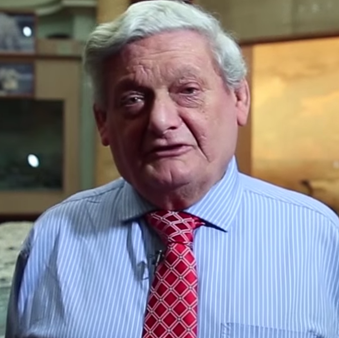
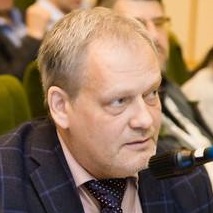
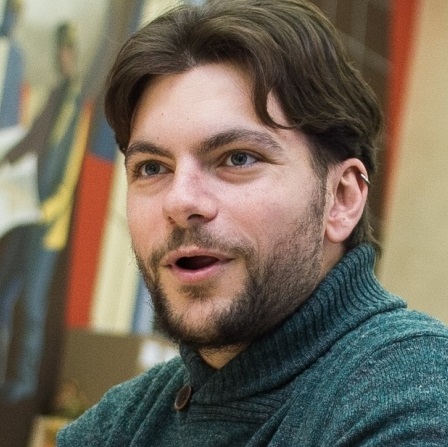
Terry Callaghan
Member of the Academic board of the programme; Head of the laboratory
Professor of Botany, Tomsk State University
Professor of Arctic Ecology, University of Sheffield, UK.
Coordinator of the INTERACT Network of Arctic Terrestrial Research Stations.
Honorary Doctor of the Universities of Lund (Sweden), Oulu (Finland) and Tomsk State (Russia), Recipient of the Polar Medal (UK), the Vega Medal (Sweden) and joint recipient of the 2007 Nobel Peace Prize.
Kirpotin Sergey N.
DSc in Biology, Head of the Bio-Clim-Land Center of Excellence
Roberto Cazolla Gatti
postdoctoral researcher at Tomsk state university actively involved in teaching and Masters programs update and development
Research
To learn about current research projects follow the link http://en.science.tsu.ru/centers/research-into-biota-climate-and-landscape/
Behavior of organic carbon and associated microelements in lake environments of the permafrost zone
Objectives of the project are to establish patterns of destruction of organic material and behavior of organic carbon, greenhouse gases and trace elements in the dynamics of oxidation-reduction conditions in bottom sediments and the water column of northern lakes; to obtain new data on the influence of thermokarst lakes on carbon cycle; to determine background concentrations of heavy metals in bottom sediments of thermokarst lakes.
Students take an active part in the project, working in the laboratories and doing chemical-analytical research.
Structure and functioning of floodplain biogeocenoses of the Ob river in the context of climatic and anthropogenic changes
The project is aimed at assessing, understanding and predicting changes in the floodplain biogeocoenoses of the world’s largest waterway the Ob River, which occur under the influence of climatic and anthropogenic factors.
Students participate in field research and perform chemical-analytical and microbiological works
Admission and application
| Specific requirements | More information |
| knowledge minimum | Bachelor’s degree Specialist’s degree |
| previouseducation | Data science, computer science, informatics, mathematics, computer engineering, program engineering or Bachelor of Science. |
| professional experience | Relevant working experience is an advantage, it is not necessary |
| other admission requirements | Students will be selected based on an: 1) assessment of their prior knowledge of the subject; 2) motivation letter; 3) Interview with program Director (in person or using Skype). |
Tuition fees
| Year | Citizens of the Russian Federation and near abroad | Other International Citizens |
| 2017-2018 | 125 100 RUB | 150 120 RUB |

To participate in the interview, please fill out a registration form on the program website: http://cs.tsu.ru
Application deadlinesfor the citizens of the Russian Federation and CIS
countries in 2018
| Application deadline | April 3 – August 14 |
| Examinations | May 10 – August 16 |
Application deadlinesfor the other International
citizens in 2018
| Appication deadline | January15 – July 10 |
| Examinations | January16 – July 26 |
Career prospects
Graduates of the program have a unique combination of skills in ecology and environmental management of Siberia and the Arctic, well acquainted with the modern methods of environmental research and the methodology of scientific research and are able to use it to solve real-world problems.
There is a growing need in Russian and international companies for specialists in this field.
After the graduation you can choose to continue research work and stay at the laboratories of the Center, to enter our postgraduate programme, to become an international postdoc fellow or to go work for one of the partners of the Center like Research Institute of the SB RAS.
Contacts
If you want to know more about the Program Study of Siberia and the Artic, please contact:
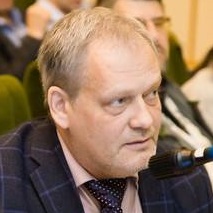
Head of the Program
Sergey Kirpotin
e-mail: kirp@mail.tsu.ru
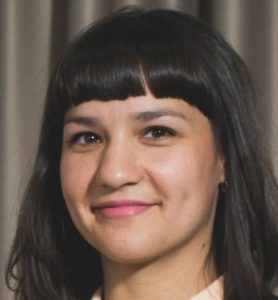
Program manager:
Kseniya Nikitchuk
e-mail: k.nikitchuk@yandex.ru






